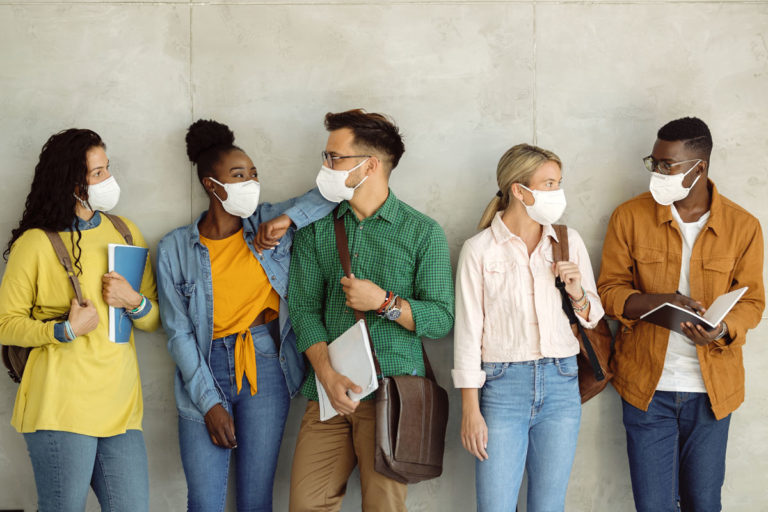Table of Contents
Before 2020, college was filled with drama, cheesy school functions and the dread of having to wake up to go to class. Students had the daily small annoyances of dealing with people and often made jokes about wishing they didn’t have to deal with face-to-face interactions anymore. Just a year ago, I would have loved for my teachers to cancel class for a whole day and not have to leave my dorm! Since COVID-19, so many people now realize how they have taken face-to-face interactions for granted. Now, students crave the school functions, the in-person classes and the chance to make new friends.
A challenge for student mental health
Public health guidelines during the pandemic of social distancing, mask wearing and quarantining keep the community safe from physical sickness, but are negatively affecting student mental health. Since the lockdown in March, a study found that 71% of college students have increased stress due to the pandemic.
College-aged adults are already at an increased risk for depression, anxiety and suicidal ideation. According to CDC research from this past summer, 25.5% of young adults (18-24) seriously considered suicide in the 30 days prior to the survey, compared to 10.7% from the general public. So, anxiety and depression due to the pandemic is especially impacting young adults. As a student myself, the exciting, community-based activities associated with college life are more than limited — they’re eliminated. Meeting for classes via Zoom, restricting opportunities to socialize, and meeting new friends but never seeing their smiles in person causes a relational rift that significantly impacts mental health.
Social relationships are proven to have a high impact in increasing life satisfaction and purpose, and benefits overall health. Especially in college — when young adults are still trying to adjust to living away from home and learning about themselves — having the social support of friends helps that adjustment process. Friendships in college are pivotal in a student’s ability to feel accepted, and can decrease the risk of loneliness and depression. Being in college myself, I’ve personally seen the effects of the pandemic on the mental health of those around me.
Discover how telehealth improves campus well-being
The impact of the pandemic on those around me
I recently asked some friends about their personal experiences with how the pandemic has affected them. Many of them commented on the general stress that has come because of changes to their education. Others noted a lack of closure from the cancelation of their graduation ceremony last year, which was a less-than-grand departure. Many had been looking forward to walking the graduation stage since they were young, and felt they had been robbed of a celebratory end of their student career.
A good friend recently confided in me about how anxious she is. She shared about the increase of stress surrounding school and social interaction. This has heavily impacted her sleep schedule, as she often spends her nights lying awake and anxious. Another friend shared about the devastation of not being able to join her family for the holidays. Getting COVID-19 prevented her from spending Thanksgiving at home. I can only imagine the loneliness that followed that situation, while also balancing the continual responsibilities of school.
A support system for students
So, what is the answer to all of this? We cannot risk our physical health in the name of protecting mental health. But at the same time, there needs to be more awareness of just how devastating the pandemic has been for the mental health of our nation. More research and more aid need to be available. Resources that are safe to use — like telehealth services — need to be pushed and encouraged as we continue to decrease the stigma around getting support for mental health. Recent studies encourage mental health services at colleges to have specifically tailored programs that help support the needs of their students effectively. This understanding helps mental health services, like TimelyCare, partner with colleges to examine students’ needs and tailor services to best help them succeed. These services need to be encouraged and marketed to provide students with aid during this critical time.
As our country continues to heal both physically and mentally from the COVID-19 pandemic, TimelyCare is committed to getting students the care they need, when they need it. You can learn more about telehealth for students here.
Student Profile
Christine Wagner
- Palm Beach Atlantic University
- Major: Psychology
- Minor: Dance
- Class of 2021





